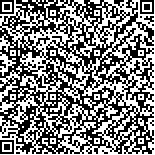| 引用本文: |
王剑,曹敏.定坤丹对宫腔粘连患者宫腔镜术后再粘连的预防及相关细胞因子的影响[J].湖南中医药大学学报,2018,38(8):913-916[点击复制] |
|
| |
|
|
| 本文已被:浏览 3229次 下载 1348次 |
| 定坤丹对宫腔粘连患者宫腔镜术后再粘连的预防及相关细胞因子的影响 |
| 王剑,曹敏 |
| (湖南中医药大学第一附属医院妇产科, 湖南 长沙 410007;湖南中医药大学研究生院, 湖南 长沙 410007) |
| 摘要: |
| 目的 观察定坤丹对宫腔粘连患者宫腔镜术后再粘连预防的疗效及相关细胞因子的影响。方法 将120例宫腔粘连患者宫腔镜术后随机分为中药组、西药组、空白组各40例,西药组术后予常规西药口服,中药组术后予定坤丹口服,疗程均为3个月;空白组术后无特殊药物治疗。观察治疗前后3组患者宫腔粘连程度及子宫内膜组织转化生长因子-β1 (TGF-β1)及纤溶酶原激活剂抑制因子(PAI-1)的变化。结果 (1)中药组治疗后总有效率显著高于空白组(P<0.05);中药组与西药组治疗后总有效率比较差异无统计学意义(P>0.05);(2)治疗前3组子宫内膜组织TGF-β1及PAI-1的表达比较差异无统计学意义(P>0.05);治疗后中药组和西药组子宫内膜组织TGF-β1及PAI-1的表达均明显低于空白组(P<0.05),中药组和西药组比较差异无统计学意义(P>0.05)。结论 定坤丹对宫腔粘连患者宫腔镜术后再粘连预防有一定疗效,其作用机制可能与抑制子宫内膜组织TGF-β1、PAI-1的表达相关。 |
| 关键词: 宫腔粘连复发 宫腔粘连分离术 定坤丹 转化生长因子-β1 纤溶酶原激活剂抑制因子 |
| DOI:10.3969/j.issn.1674-070X.2018.08.017 |
| 投稿时间:2018-03-24 |
| 基金项目:湖南省自然科学基金课题(2015JJ3096);湖南省教育厅课题(13c695)。 |
|
| Effect of Dingkundan in Prevention of Recurrence After Hysteroscopic Surgery in Patients with Intrauterine Adhesions and Its Influence on Related Cytokines |
| WANG Jian,CAO Min |
| (Department of Obstetrics and Gynecology, The First Affiliated Hospital of Hunan University of Chinese Medicine, Changsha, Hunan 410007, China;Graduate School, Hunan University of Chinese Medicine, Changsha, Hunan 410007, China) |
| Abstract: |
| Objective To investigate the effect of Dingkundan in the prevention of recurrence after hysteroscopic surgery in patients with intrauterine adhesions and its influence on related cytokines. Methods A total of 120 patients with intrauterine adhesions were equally and randomly divided into three groups after hysteroscopic surgery:traditional Chinese medicine (TCM) group, Western medicine group, and blank group. After surgery, the Western medicine group was given oral administration of conventional Western medicine, while the TCM group was given oral administration of Dingkundan. The course of the treatment was 3 months in both groups. However, the blank group was not given any medicine after surgery. The degree of intrauterine adhesions and the expression of transforming growth factor-β1 (TGF-β1) and plasminogen activator inhibitor (PAI-1) in the endometrium were observed before and after treatment. Results After treatment, the TCM group had a significantly higher overall response rate than the blank group (P<0.05). However, there was no significant difference in the overall response rate between the TCM group and the Western medicine group (P>0.05). There was no significant difference in the expression of TGF-β1 and PAI-1 in the endometrium between the three groups before treatment (P>0.05). After treatment, the expression of TGF-β1 and PAI-1 in the endometrium in the TCM group and the Western medicine group was significantly lower than that in the blank group (P<0.05). However, there was no significant difference in the expression of TGF-β1 and PAI-1 in the endometrium between the TCM group and the Western medicine group (P>0.05). Conclusion Dingkundan has a certain effect in preventing the recurrence after hysteroscopic surgery in patients with intrauterine adhesions. The mechanism may be related to the inhibition of TGF-β1 and PAI-1 expression in the endometrium. |
| Key words: recurrence of intrauterine adhesions transcervical resection of adhesion Dingkundan TGF-β1 PAI-1 |
|

二维码(扫一下试试看!) |
|




